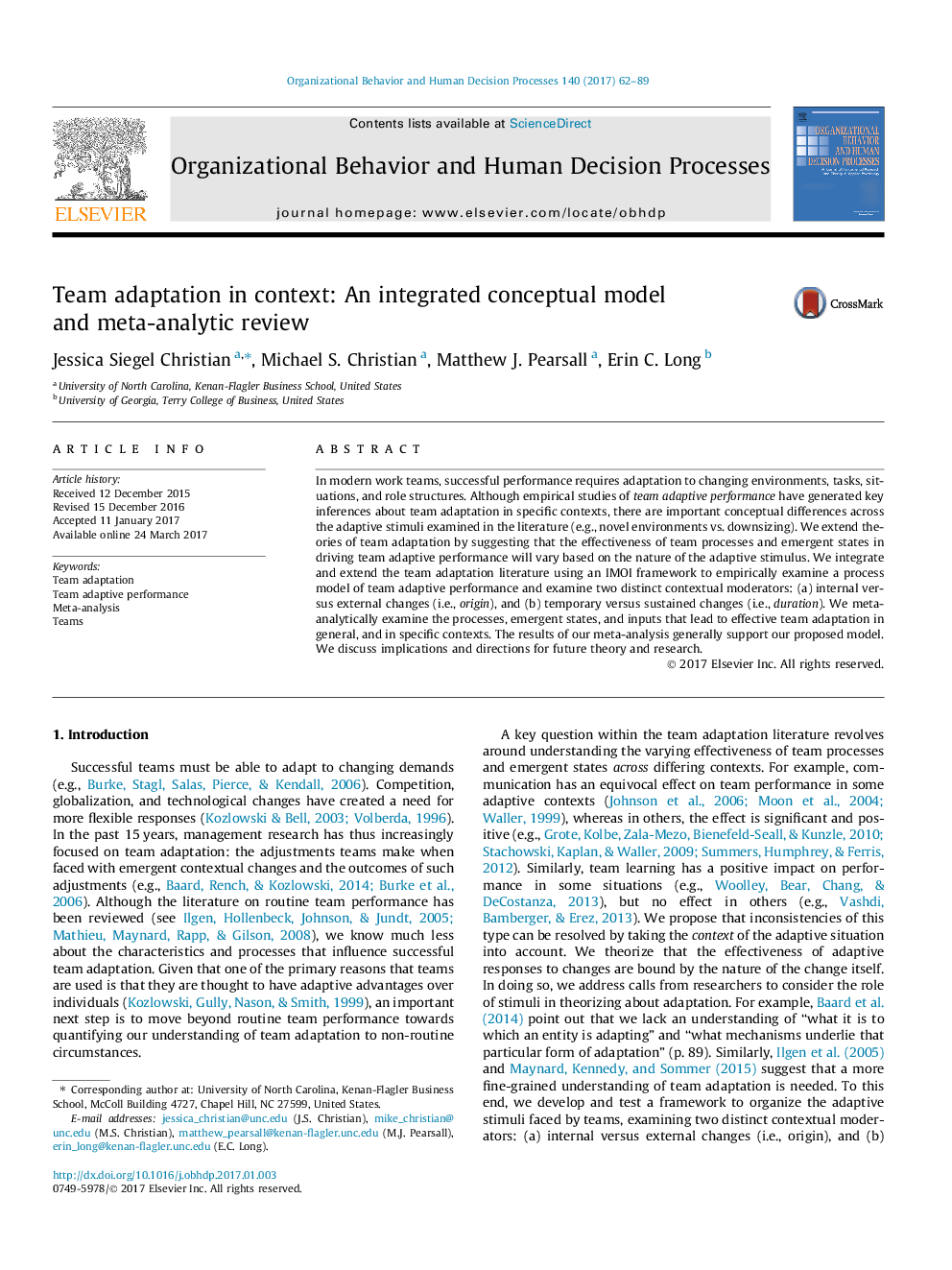| Article ID | Journal | Published Year | Pages | File Type |
|---|---|---|---|---|
| 5035326 | Organizational Behavior and Human Decision Processes | 2017 | 28 Pages |
â¢An integrated model predicting team adaptive performance is developed and tested.â¢Context plays an important role in team adaptive performance.â¢Adaptive stimuli moderate the team processes-adaptive performance relationship.â¢Team processes and cognition are positively related to team adaptive performance.â¢Team inputs relate to adaptive performance less strongly than proximal mechanisms.
In modern work teams, successful performance requires adaptation to changing environments, tasks, situations, and role structures. Although empirical studies of team adaptive performance have generated key inferences about team adaptation in specific contexts, there are important conceptual differences across the adaptive stimuli examined in the literature (e.g., novel environments vs. downsizing). We extend theories of team adaptation by suggesting that the effectiveness of team processes and emergent states in driving team adaptive performance will vary based on the nature of the adaptive stimulus. We integrate and extend the team adaptation literature using an IMOI framework to empirically examine a process model of team adaptive performance and examine two distinct contextual moderators: (a) internal versus external changes (i.e., origin), and (b) temporary versus sustained changes (i.e., duration). We meta-analytically examine the processes, emergent states, and inputs that lead to effective team adaptation in general, and in specific contexts. The results of our meta-analysis generally support our proposed model. We discuss implications and directions for future theory and research.
